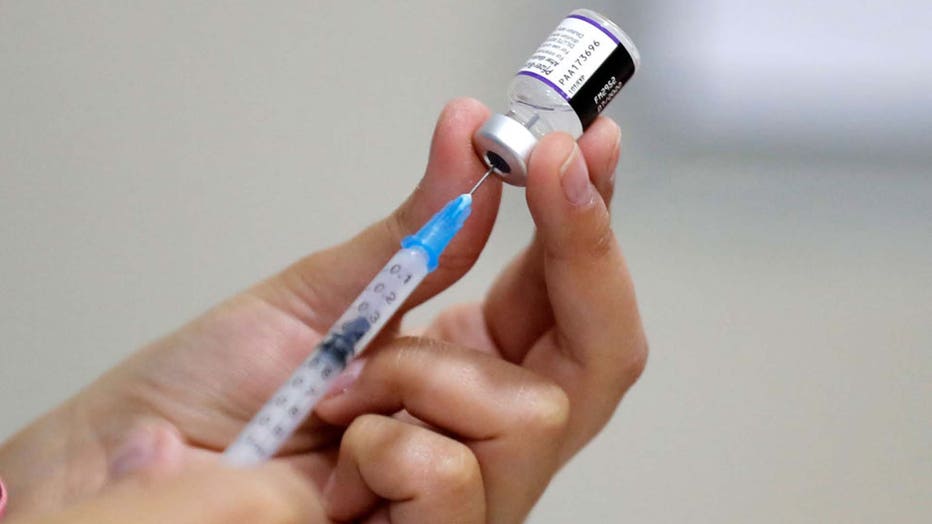Pfizer: Omicron-specific COVID-19 vaccine human trials to begin late January
Omicron variant: What to know about the new COVID-19 strain
An advisory panel of the World Health Organization classified on Nov. 27, 2021, a worrying new COVID-19 variant first detected in South Africa as a highly transmissible virus of concern, naming it "Omicron" under its Greek letter system.
Pfizer will begin human trials of an omicron-specific COVID-19 vaccine beginning in late January, a company spokesperson confirmed Monday to FOX TV Stations.
"We already have begun work on a DNA template tailored to the sequence of Omicron, a critical step in the process of advancing a variant version of our vaccine if in fact we find one is needed. And also manufacturing the variant vaccine at risk, as we did for Beta and Delta before," the spokesperson continued.
The company is comparing clinical trials done on the omicron-specific vaccine thus far against current vaccines.
Pfizer also aims to have a COVID-19 vaccine that specifically targets omicron and other circulating variants available to the public by March.

FILE - A health worker prepares a dose of the Pfizer-BioNTech vaccine. (JAVIER TORRES/AFP via Getty Images)
RELATED: CDC guidelines: When is the best time to get tested for COVID-19 after exposure?
The announcement comes after the pharmaceutical giant previously said it would be able to develop and produce a tailor-made vaccine against the omicron variant in roughly 100 days, subject to regulatory approval, in the event that a third dose of its current BNT162b2 vaccine is not found to protect against the Omicron variant or other future variants.
Pfizer CEO Albert Bourla first announced the March timeline during an interview with CNBC on Monday.
Earlier this month, Pfizer and BioNTech received approval from the Food and Drug Administration to expand the emergency use authorization of its COVID-19 vaccine booster doses to individuals 12 years of age and older and reduced the amount of time between administration of a second dose and booster dose from at least six months to at least five months.
A Dec. 31 study by the United Kingdom's Health Security Agency found that the effectiveness of Pfizer or Moderna's COVID-19 vaccine against symptomatic infection dropped to around 10% by 20 weeks after the second dose.
In a separate study by the agency released on Jan. 7, officials found that around three months after receiving a booster dose, protection against hospitalization among those aged 65 and over remained at about 90%. With just two vaccine doses, the study found that protection against severe disease dropped to around 70% after three months and to 50% after six months. The agency noted that there is no need to introduce a second booster dose to the most vulnerable populations as of this time, adding that potential need and timing will be reviewed as data evolves.
RELATED: CDC reduces recommended wait time for getting Pfizer COVID-19 booster shot
The determination echoes comments made by the White House's chief medical adviser, Dr. Anthony Fauci, who said during a press conference last month that the United States' current booster shot regimens are working against omicron.
According to the U.S. Center of Disease Control and Prevention, over 74.5 million fully vaccinated Americans have received a COVID-19 booster dose. As of Dec. 29, Pfizer and BioNTech delivered 1 billion doses of its COVID-19 vaccine to low- and middle-income countries. The companies expect to deliver an additional 1 billion doses to these nations in 2022.
FOX Business contributed to this report.

